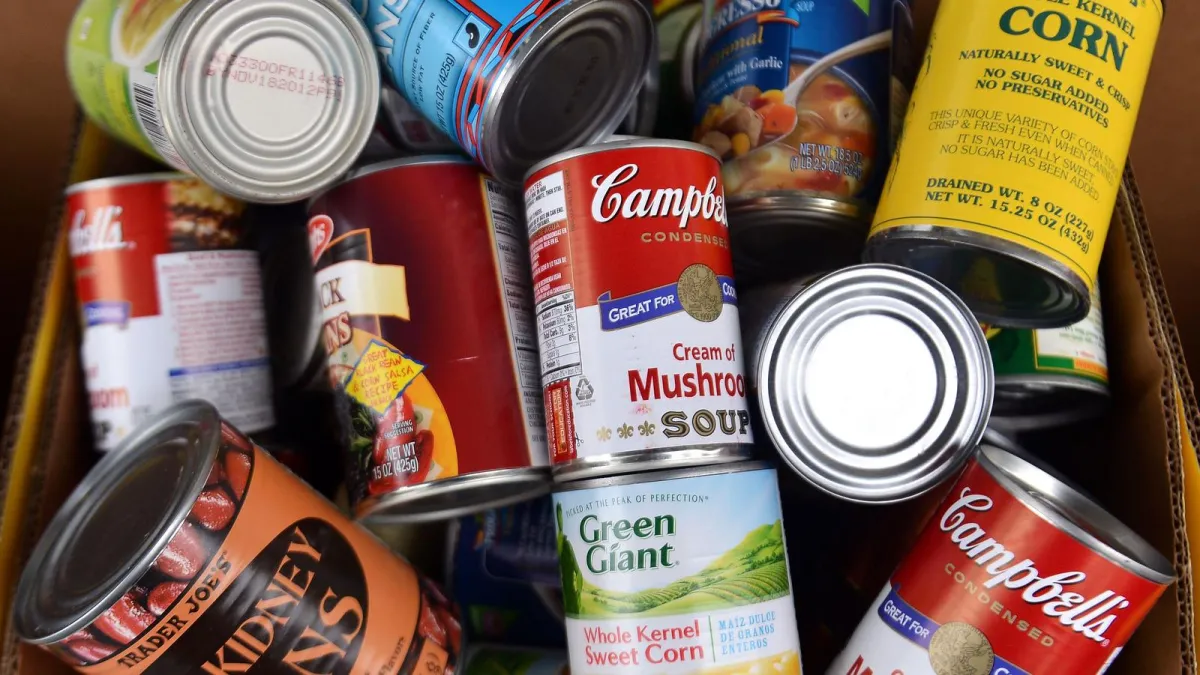
The Hidden Danger in Your Pantry: How BPA in Canned Foods Impacts Your Health
You might not think twice about grabbing a can of soup for lunch, but recent research reveals something alarming. A study found that people who ate canned soup for just five days in a row saw their body’s BPA levels spike by 1,000%.
Yes, you read that right—1,000%.
BPA, or bisphenol A, is a chemical commonly used in the lining of canned goods, and it’s linked to a range of serious health issues, including:
Decreased sperm counts and fertility problems
Increased blood pressure
Hormonal imbalances in women
That’s because the inside of most cans is coated with a thin layer of plastic. Whether it’s soup, sparkling water, or beer, this plastic lining sheds tiny particles into your food or drink without you even realizing it.
Why This Matters for Your Health
If you’ve been experiencing fertility issues, unexplained high blood pressure, or hormone imbalances and your doctor says nothing is wrong, this might be a factor worth considering.
BPA exposure is just one example of how environmental toxins sneak into your body, often unnoticed, yet can wreak havoc on your health. What’s even more concerning is that these chemicals aren’t something typically tested for in standard medical checkups. But that doesn’t mean they aren’t affecting you.
How to Reduce Your BPA Exposure
When I work with clients, I make it a point to address hidden toxins like BPA in their diet and environment. Here are a few ways to limit your exposure:
Opt for fresh or frozen foods instead of canned
Look for BPA-free labels when buying canned goods
Use glass or stainless steel containers for storing food and beverages
These simple steps can help reduce your toxic load and improve your overall health.
Environmental toxins, like BPA, are often invisible culprits behind common health issues such as infertility, high blood pressure, and hormone imbalances. While they may not show up in routine tests, their effects on your body are real and measurable.
If you’ve been struggling with health issues and haven’t found answers, it’s worth considering whether BPA and other environmental toxins are playing a role.
Take control of your health by reducing your exposure—and remember, the smallest changes can have the biggest impact.

The Hidden Danger in Your Pantry: How BPA in Canned Foods Impacts Your Health
You might not think twice about grabbing a can of soup for lunch, but recent research reveals something alarming. A study found that people who ate canned soup for just five days in a row saw their body’s BPA levels spike by 1,000%.
Yes, you read that right—1,000%.
BPA, or bisphenol A, is a chemical commonly used in the lining of canned goods, and it’s linked to a range of serious health issues, including:
Decreased sperm counts and fertility problems
Increased blood pressure
Hormonal imbalances in women
That’s because the inside of most cans is coated with a thin layer of plastic. Whether it’s soup, sparkling water, or beer, this plastic lining sheds tiny particles into your food or drink without you even realizing it.
Why This Matters for Your Health
If you’ve been experiencing fertility issues, unexplained high blood pressure, or hormone imbalances and your doctor says nothing is wrong, this might be a factor worth considering.
BPA exposure is just one example of how environmental toxins sneak into your body, often unnoticed, yet can wreak havoc on your health. What’s even more concerning is that these chemicals aren’t something typically tested for in standard medical checkups. But that doesn’t mean they aren’t affecting you.
How to Reduce Your BPA Exposure
When I work with clients, I make it a point to address hidden toxins like BPA in their diet and environment. Here are a few ways to limit your exposure:
Opt for fresh or frozen foods instead of canned
Look for BPA-free labels when buying canned goods
Use glass or stainless steel containers for storing food and beverages
These simple steps can help reduce your toxic load and improve your overall health.
Environmental toxins, like BPA, are often invisible culprits behind common health issues such as infertility, high blood pressure, and hormone imbalances. While they may not show up in routine tests, their effects on your body are real and measurable.
If you’ve been struggling with health issues and haven’t found answers, it’s worth considering whether BPA and other environmental toxins are playing a role.
Take control of your health by reducing your exposure—and remember, the smallest changes can have the biggest impact.
Apply To Work With Jon
Ready to take action? I'm here for you.
Sign up for an un-awkward, no-cost, no-obligation discovery call.


